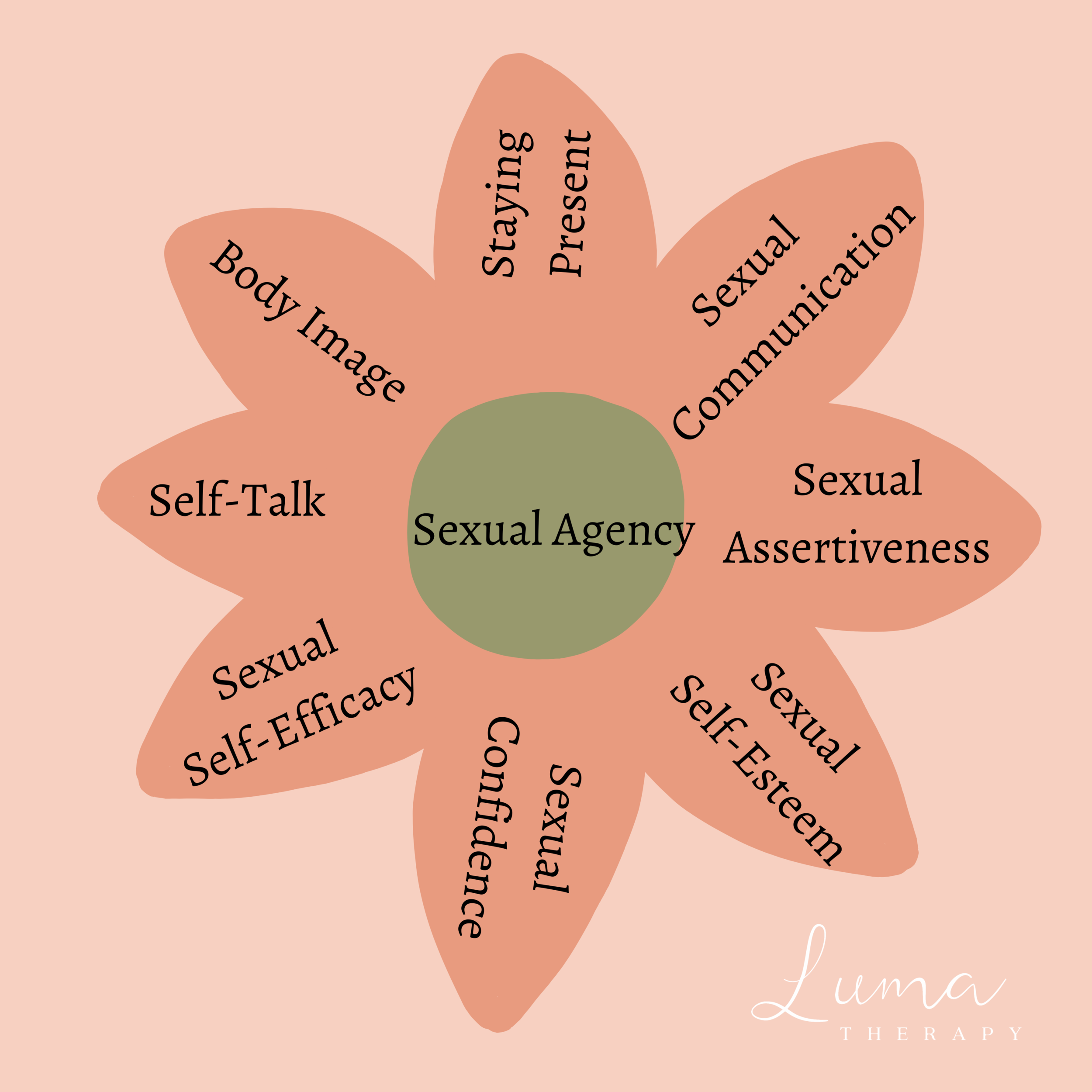What is Sexual Agency?
Sexual agency is learning to be comfortable with your sexual self.
Really, it’s a lot of things. So I wrote this post to help you get started.
Unfortunately, empowering sex education that teaches us about more than just “condoms on bananas” or “abstinence is key” isn’t something that a lot of us have had access to. This can leave us feeling confused when trying to build skills in sex related areas. That’s where sexual agency can help.
Sexual agency includes things like having enthusiastic consent (which is that “hell yeah, I want this” feeling), autonomy over your body and choices, and having access to helpful, inclusive, validating sex education.
It also includes a bunch of specific factors that help define it. If we think of sexual agency as a flower, then we can think of sexual agency factors as the petals that are all connected (see picture at the bottom). The eight sexual agency factors/petals are:
1. Sexual Confidence
This is the belief you have in yourself. The belief that you’re capable of making choices around sexual encounters and that you feel empowered to do so. It might fluctuate depending on who you are with and that’s okay.
2. Sexual Self-Esteem
This is about moving towards accepting yourself as you are and reminding yourself that you don’t have to be perfect. Humans just aren’t perfect. Sometimes that’s easy to forget, but it’s still important to remind yourself of it. Our humanness and imperfectness is what connects us, and it’s kind of a relief when we remember that we don’t have to be perfect.
3. Body Image
This is how you see yourself in the mirror and in your mind. That image that you have of yourself.
4. Sexual Assertiveness
This is your comfort level communicating your desires in a sexual encounter. It’s about recognizing that your desires are important and learning how to express them. It might include things like showing someone what you like.
5. Sexual Self-Efficacy
This is the confidence you have in your sexual abilities. Self-efficacy can be a confusing term. If we think of it in terms of math—I know, who wants to think of math?!—imagine person A and person B both have the exact same skill level at math, but person A thinks they will do really well on their test and person B thinks they will do terribly. That means person A has a higher self-efficacy around math because it’s more about their belief or confidence in their ability than their actual skill level.
6. Sexual Communication
This is about learning to feel comfortable having open and honest conversations around sexual encounters. They can be with your friends, family, or sexual partners. While sexual assertiveness is about expressing/acting on sexual desires, sexual communication is about discussing anything related to sexual encounters. You might be more comfortable with one over the other.
7. Self-Talk
These are the encouraging messages that you tell yourself, either in your head or out loud. It’s that little voice in your head, that says, “you got this.” The one that says, “I can do this.”
8. Staying Present
This is about coming back to the present moment when you notice your mind wandering elsewhere. Remember, it’s not about being perfect—it’s just about noticing when your mind wanders and reminding yourself to come back to the moment.
Being able to understand the different petals enables you to blossom your sexual agency flower.
Don’t forget to sign up on the “Stay Connected” page to be updated of upcoming workshops on Sexual Agency!

